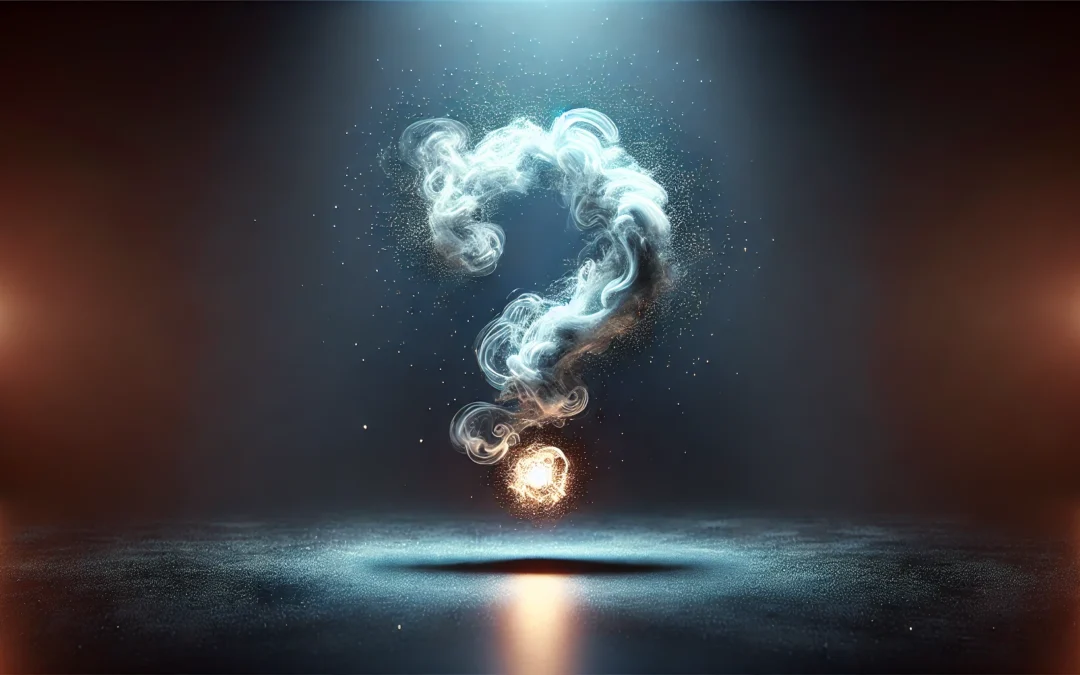Have you ever found yourself staring at the night sky, wondering about the countless stars and galaxies beyond our reach? This sense of curiosity and wonder is something we all share, and it extends to the unknowns in our everyday lives. Whether it’s a new hobby you haven’t tried yet or a scientific mystery waiting to be solved, unknowns are all around us. They challenge us, inspire us, and sometimes even frustrate us. But most importantly, they keep life interesting.
In this article, we’re going to explore 30 examples of unknowns that might surprise you. Some of these are things you encounter every day without even realizing it, while others are mysteries that have puzzled experts for years. From the depths of the ocean to the vastness of space, there are endless questions waiting to be answered. So, as you read on, think about the unknowns in your own life and how they might spark a new interest or lead to a fascinating discovery. Let’s take a closer look at some of these intriguing mysteries.
What Makes Unknowns So Intriguing?
The unknown is more than just a puzzle – it’s a driving force behind discovery. From ancient myths to modern science, it pushes us to ask questions, seek answers, and expand our horizons. It sparks creativity, challenges our understanding, and brings new opportunities to grow. Whether it’s a mystery in science, history, or everyday life, the unknown fascinates us because it represents what we’ve yet to uncover.
The Best Examples of Unknowns
1. The Memory of Ancestors in DNA
Epigenetics is a groundbreaking field exploring how environmental factors can influence gene expression. One hypothesis suggests that we might inherit experiences or memories from our ancestors through DNA. Studies in mice have shown trauma affecting future generations’ behavior, but this concept in humans is not fully understood. Could the fears, skills, or resilience of our forebears shape who we are? This tantalizing unknown connects biology to the mysteries of identity and memory.
2. The Mysteries of Lake Vostok
Lake Vostok lies hidden beneath 4 kilometers of Antarctic ice, untouched for millions of years. This subglacial lake remains one of Earth’s most isolated environments, raising the possibility of unique life forms adapted to extreme conditions. Researchers have drilled into the ice and found microbial life, but what else could be thriving in its dark, pressurized waters? Studying Lake Vostok could provide insights into alien ecosystems on icy moons like Europa.
3. The Disappearance of Malaysia Airlines Flight MH370
On March 8, 2014, Malaysia Airlines Flight MH370 vanished during a routine trip from Kuala Lumpur to Beijing. Despite extensive searches and some debris discoveries, the main wreckage and the exact circumstances of its disappearance remain unknown. Was it mechanical failure, a hijacking, or pilot error? The lack of definitive answers fuels widespread speculation and theories, ranging from the plausible to the fantastical. This mystery highlights the vastness of our planet and the limits of modern technology in tracking aircraft.
4. The Origin of Dark Energy
Dark energy is believed to make up around 68% of the universe, yet no one knows what it is. Scientists theorize it’s responsible for the accelerating expansion of the universe, but there’s no clear understanding of what it actually is. Exploring this unknown could fundamentally change how we understand the cosmos.
5. The Riddle of Historical Events
History is full of events that remain shrouded in mystery. For instance, the identity of Jack the Ripper or the fate of the lost colony of Roanoke are unknowns that captivate historians and the public alike. These historical puzzles prompt ongoing investigation and speculation, keeping the stories alive in modern culture.
6. The Unpredictability of the Stock Market
The stock market is inherently unpredictable, filled with unknowns that can affect investment decisions. Market trends can shift rapidly due to unforeseen events, making it difficult to predict future movements. This uncertainty is a significant factor for investors, who must constantly adapt their strategies to navigate these unknowns.
7. The Ambiguity of Dreams
Dreams are a mysterious aspect of human experience, with many unknowns about why we dream and what our dreams mean. While some theories suggest dreams help process emotions or solve problems, their true purpose remains elusive. This ambiguity makes dreams a fascinating subject for psychologists and curious minds.
8. The Uncharted Depths of the Ocean
The ocean is another frontier filled with unknowns. Despite covering over 70% of the Earth’s surface, much of it remains unexplored. Scientists continue to discover new species and ecosystems in the deep sea, highlighting how much we still have to learn about our planet. These unknowns drive ongoing marine research and exploration.
9. The Uncertainty of Future Technology
As technology evolves rapidly, the future holds many unknowns. Innovations like artificial intelligence and biotechnology promise significant changes, but their long-term effects are still uncertain. These unknowns raise questions about ethical implications and the future of human society, prompting careful consideration and planning.
10. The Intricacies of Genetic Research
Genetics is a field full of unknowns, particularly regarding the role of genes in health and disease. While scientists have mapped the human genome, the functions of many genes are still not fully understood. These unknowns drive ongoing research into genetic diseases and personalized medicine, pushing the boundaries of what we know about biology.
11. The Secrets of the Human Microbiome
The human microbiome consists of trillions of microorganisms living in and on our bodies, yet much about their interactions and effects remains unknown. Researchers are only beginning to understand how these microbes influence health, immunity, and even behavior. The complexity of these microbial communities and their vast genetic diversity pose significant challenges and opportunities for scientific exploration.
12. The Mysteries of Ancient Civilizations
Ancient civilizations such as the Maya and the Indus Valley people left behind enigmatic ruins and artifacts. Despite extensive archaeological efforts, many aspects of their societies, including their languages, cultural practices, and reasons for decline, remain unclear. These mysteries continue to inspire both academic research and public fascination, as we strive to piece together the stories of these lost worlds.
13. The Complexity of Animal Communication
Animal communication is a field filled with unknowns, as scientists work to decode the various sounds, gestures, and signals used by different species. While we have made progress in understanding some communication methods, such as dolphin echolocation and bee dances, many remain elusive. These unknowns drive ongoing research into animal cognition and interspecies communication, revealing the rich tapestry of life on Earth.
14. The Puzzle of Quantum Mechanics
Quantum mechanics is a branch of physics that deals with the behavior of particles at the smallest scales. It is filled with unknowns that challenge our understanding of reality. Concepts like superposition and entanglement defy classical logic, making quantum mechanics both fascinating and perplexing. These mysteries continue to intrigue physicists and lead to groundbreaking theories.
15. The Mystery of Ball Lightning
Ball lightning is a rare atmospheric phenomenon often reported during storms. Its causes remain unclear, with scientists proposing theories involving plasma, gases, or even hallucinations. This mysterious phenomenon continues to puzzle researchers and witnesses.
16. The Intrigue of Uncontacted Tribes
There are still tribes around the world that have had little to no contact with modern civilization. The unknowns about their languages, cultures, and ways of life are profound, as these communities live in isolation, often in remote areas. Ethical considerations complicate efforts to study them, as contact could disrupt their societies, leaving much about their existence a mystery.
17. The Phenomenon of Spontaneous Human Combustion
Spontaneous human combustion is a rare and controversial phenomenon where individuals reportedly catch fire without an external ignition source. The scientific basis for these occurrences is not well understood, and many cases remain unexplained. This mystery captivates both scientists and the public, leading to various theories but few definitive answers.
18. The Unseen Forces of Antimatter
Antimatter, the counterpart to ordinary matter, is one of the great unknowns in physics. Despite being predicted by theory and observed in experiments, its scarcity in the universe is puzzling. Understanding antimatter could unlock secrets about the origins of the universe and the fundamental laws of physics, yet much remains to be discovered.
19. The Enigma of the Human Brain
The human brain is incredibly complex, and much of its workings are still not fully understood. Neuroscientists continue to study how thoughts are formed and how memories are stored. The unknowns of the brain include how consciousness arises and why certain mental disorders occur. These mysteries push researchers to uncover how our minds truly function.
20. The Unpredictability of Viral Mutations
The mutation of viruses is a process fraught with unknowns, as these changes can lead to new and unpredictable strains. Scientists strive to understand how and why these mutations occur, especially in the context of disease outbreaks and vaccine development. The uncertainty surrounding viral mutations poses significant challenges for public health and global preparedness.
Why the Unknowns Fascinate Us
There’s something about the unknown that captures our imagination. It’s woven into our very nature to seek answers, to ask “what if?” Whether it’s a child wondering what’s in the dark closet or an astronomer searching the skies for distant planets, curiosity drives us. It’s not just about finding answers – it’s the thrill of the question itself.
Stories passed down through generations are often built around mysteries. Myths and folklore, like the legend of Atlantis or tales of hidden treasures, reflect our fascination with what lies beyond our understanding. These stories entertain us, but they also serve a deeper purpose. They encourage us to think beyond what we see, sparking creativity and innovation.
Psychologists believe our love for the unknown comes from our need to make sense of the world. Uncertainty can feel unsettling, but it also pushes us to learn and grow. The unknown challenges us to step out of our comfort zones, often leading to discoveries that change the way we live. Even in everyday life, we chase the unknown – trying a new recipe, exploring a different hobby, or traveling to a place we’ve never been.
This fascination isn’t just an individual experience. Cultures worldwide share a collective awe for what’s unexplored. It’s why we have traditions celebrating the mysteries of life and why we continue to search for answers to questions like, “Are we alone in the universe?” The unknown doesn’t just puzzle us – it inspires us to dream bigger.
The Unknowns Yet to Be Explored
The future holds countless mysteries waiting to be uncovered. Some are grand and cosmic, while others lie hidden in the everyday details of life. Take the concept of interstellar travel. We’ve sent probes to the farthest reaches of our solar system, but the idea of humans venturing beyond it is still more science fiction than reality. Could we one day visit planets in other star systems? This question fuels some of the most ambitious projects in science and engineering.
Closer to home, the mysteries of the human mind remain largely unsolved. What is consciousness? How do we experience thoughts and emotions? Understanding these unknowns could lead to breakthroughs in treating neurological disorders and expanding our understanding of what it means to be human.
Another frontier is medical science. Diseases like Alzheimer’s and cancer still hold secrets that scientists are working tirelessly to unravel. Advances in technology, like gene editing and personalized medicine, bring us closer to answers. Yet, the path to curing these conditions remains uncertain, filled with both hope and questions.
And then there’s technology itself. The rise of artificial intelligence presents unknowns that are as exciting as they are daunting. How far can machines go in replicating human thought? What ethical challenges will emerge as AI becomes more integrated into our lives? These are questions that will shape the future of technology and society.
From the deepest parts of our oceans to the furthest reaches of space, the unknowns yet to be explored remind us how much we still have to learn. They challenge us to think boldly, to question what we believe is possible, and to push the boundaries of knowledge. The journey to uncover these mysteries may not have clear answers, but it promises to be one of humanity’s most remarkable adventures.
Exploring the Beauty of Unanswered Questions
Life is filled with questions that remain unanswered, and there’s a certain beauty in that. These unanswered questions can spark curiosity and drive innovation. They encourage us to think deeply and explore beyond the obvious. Take, for example, the mysteries of space. Scientists have long been fascinated by the vastness of the universe and the secrets it holds. While we have made significant strides in understanding our cosmos, many questions remain. What is dark matter? Are there other forms of life out there? These mysteries push the boundaries of our knowledge and fuel scientific inquiry.
Similarly, in the field of medicine, unanswered questions lead to groundbreaking discoveries. Consider the ongoing research into diseases that have plagued humanity for centuries. Each question that arises in the search for a cure opens doors to new treatments and possibilities. It is this quest for answers that propels the medical field forward, offering hope to millions.
Unanswered questions also play a crucial role in philosophy and the arts. Philosophers have long pondered the nature of existence, morality, and consciousness. These are questions that might never have definitive answers, yet they challenge us to think critically and reflect on our lives. In literature and art, ambiguity and open-endedness invite interpretation and personal connection, allowing each person to find their own meaning.
In essence, unanswered questions are not just gaps in our knowledge; they are opportunities for growth and discovery. They remind us that there is always more to learn and understand, and that the journey of seeking answers is as important as the answers themselves.
Unknowns in Scientific Discovery
The concept of “unknowns” is a cornerstone of scientific discovery. In the realm of science, unknowns are the gaps in our knowledge that drive research and innovation. Scientists are constantly faced with questions that have no immediate answers. These unknowns push them to explore new theories, conduct experiments, and develop technologies that were previously unimaginable.
One of the most fascinating aspects of scientific unknowns is how they lead to breakthroughs. For example, the unknowns surrounding the nature of diseases have led to the development of vaccines and treatments that have saved millions of lives. Similarly, the mysteries of the universe, such as dark matter and black holes, continue to inspire astrophysicists to search for answers that could fundamentally change our understanding of the cosmos.
Despite the challenges unknowns present, they are essential for progress. They compel scientists to question assumptions and explore alternative explanations. This process of inquiry and testing drives scientific advancement. Addressing unknowns also requires an open mindset – one that accepts uncertainty and takes calculated risks. This approach enables scientists to uncover new knowledge and push the boundaries of what is possible.
Dealing with Unknowns in Business Strategy
Unknowns are a critical factor in business strategy. In the business world, unknowns refer to the uncertainties and unpredictable variables that can impact a company’s success. These can include changes in market trends, consumer behavior, and technological advancements. Businesses must navigate these unknowns to remain competitive and achieve their goals.
One of the key challenges in dealing with unknowns in business is risk management. Companies must assess the potential risks associated with unknowns and develop strategies to mitigate them. This can involve conducting market research, analyzing data, and using forecasting models to anticipate future trends. By understanding the potential impact of unknowns, businesses can make informed decisions and allocate resources effectively.
Another important aspect of managing unknowns is adaptability. Companies must be flexible and willing to change their strategies in response to new information or unexpected events. This requires a culture of innovation and a willingness to experiment with new ideas. Businesses that can adapt quickly to unknowns are more likely to thrive in a rapidly changing environment.
Unknowns in business strategy also present opportunities for growth and differentiation. By identifying and capitalizing on emerging trends, companies can gain a competitive advantage and position themselves as leaders in their industry. However, this requires a proactive approach and a willingness to invest in research and development.
Facing Uncertainty in Personal Growth
Life is full of unknowns, and they often come with challenges. These moments can feel uncomfortable, even scary, because they take us out of what we know. But stepping into the unknown is often where growth begins. It’s not always about being fearless—it’s about taking one small step forward, even when you’re unsure of the outcome.
Think about starting a new job. You might feel nervous about meeting new people or unsure about how to handle unfamiliar tasks. At first, it’s overwhelming. But as you settle in, you adapt. You build confidence, find solutions, and grow in ways you didn’t expect. Those early moments of uncertainty often turn into some of the most valuable experiences.
Uncertainty doesn’t just apply to work. It’s a big part of relationships too. Getting to know someone means navigating things you don’t understand at first. When you’re open to their perspectives, even if they’re unfamiliar, it builds trust and empathy. It deepens connections in ways that go beyond the surface.
Growth often comes from change, and change always involves some level of the unknown. Think of a time when you took a leap – a move to a new city, learning a skill you’d never tried, or making a tough decision. It probably wasn’t easy. But looking back, those moments taught you something valuable about yourself.
The truth is, uncertainty is unavoidable. But instead of fearing it, try looking at it as a chance to grow. It’s okay to feel unsure, to make mistakes, and to figure things out along the way. Growth doesn’t come from staying in your comfort zone – it comes from exploring what’s outside of it.
Each challenge you face adds a new layer to who you are. Over time, you’ll realize that the unknown isn’t something to avoid – it’s where some of life’s best lessons come from. It’s not always comfortable, but it’s worth it.
The Role of Unknowns in Innovation
Innovation thrives in the presence of unknowns. When there are gaps in knowledge, there is room for creativity and new ideas. Many of the greatest inventions and discoveries have emerged from the unknown. Explorers, scientists, and inventors have all ventured into areas with no clear outcomes. This willingness to face unknowns is a key driver of innovation.
In business, the unknown can be a catalyst for growth. Companies that are open to exploring new markets or developing new products often find success. They take calculated risks, knowing that the unknown can bring both challenges and rewards. The tech industry, for example, is constantly navigating unknowns. New technologies and consumer behaviors create an ever-shifting landscape. Companies that adapt to these unknowns often lead the market.
The unknown also encourages problem-solving. When faced with uncertainty, people are forced to think outside the box. This can lead to breakthroughs and advancements that were previously unimaginable. The willingness to experiment and fail is crucial in this process. Dealing with the unknown allows for trial and error, which is essential for innovation. By not shying away from what is unknown, individuals and companies can discover new possibilities and drive progress forward.
Read also: 20 Logical Systems Examples & Definition
The Most Popular on BitGlint

30 Defiance Examples & Meaning
Defiance is something most people experience at some point in life. You feel it when you say no to something that...

30 Cynicism Examples in Everyday Life & Definition
Cynicism is something most people have seen, heard, or even felt - but few stop to really think about what it means....

30 Ethical Dilemma Examples & Definition
Ethical dilemmas are not just topics for classrooms or philosophers. They happen to regular people every day - in...

100 Social Interaction Examples
In our increasingly digital world, the art of face-to-face social interaction remains essential for personal growth,...

100 Open-Ended Questions: Examples & Meaning
Open-ended questions are questions that invite explanation, opinion, or personal stories. Unlike yes-or-no questions,...

30 Regret Examples & What It Means
Regret is a common human emotion that almost everyone experiences at some point in their lives. It shapes our...

30 Transgression Examples & Definition
We all know what it feels like when someone “crosses the line.” Maybe they say something they shouldn't. Maybe they...
Get Inspired with BitGlint
The Latest
Hermaphroditus (Greek Mythology)
In Greek mythology, Hermaphroditus was born as the son of Hermes, the messenger god, and Aphrodite, the goddess of love and beauty. His name combines those of his parents—Hermes and Aphrodite. As the child of two Olympian deities, Hermaphroditus was extraordinarily...

30 Obedience Examples & What It Really Means
Obedience is a part of everyday life, whether we notice it or not. From following traffic laws to listening to a parent or teacher, we all experience it in one way or another. But what does obedience really mean? Why do people obey — and when should they? In this...
50 Things That Are Smart
We all know someone who seems naturally clever. Maybe they pick up new skills quickly or always have the right answer. Being smart isn't just about book smarts or having a high IQ. It shows up in many forms - from problem-solving and adapting to new situations to...
Top 30 Morale Examples & Definition
Boosting morale is essential for creating a positive and productive environment, whether at work, in school, or within any team setting. When people feel valued and motivated, they are more likely to contribute their best efforts and collaborate effectively. This...

